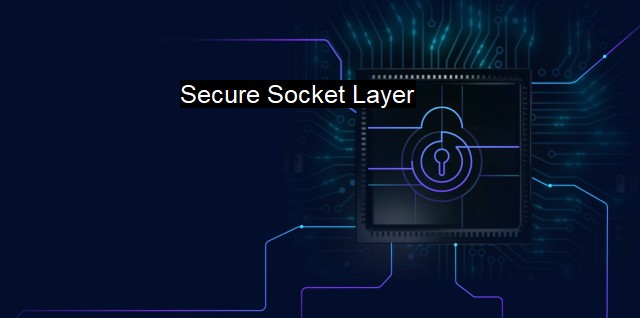What is Secure Socket Layer?
Why SSL is Crucial for Secure Internet Communication and Data Protection
Secure Socket Layer, commonly abbreviated as SSL, represents a standard technology used in establishing an encrypted and secure link between a web server and a browser. it's utilized for creating secure connections by ensuring that sensitive data passed between the web server and the browser remains confidential and integral. It operates based on the principle of encrypting data so that it cannot be comprehended or intercepted by cybercriminals, translating into the compliance of exacting high-security requirements.In a world inter-connected by the internet, the need to conduct safe online transactions is more paramount than ever. Be it making a payment while shopping online, entering personal information on a website, or sharing sensitive data by email, we trust the internet's architecture to keep our information from prying eyes or malicious intentions. At the heart of this trust lies SSL, the protector of sensitive online communications.
SSL protocol's foundation is based on two keys - the public key and the private key. The public key is designed to encrypt the data, while the private key helps decrypt it, which means every information transmitted online using SSL is encrypted with the public key. When it reaches the intended recipient, aka server, it is decrypted using the private key, ensuring its safety and confidentiality.
Some cybersecurity breaches like eavesdropping or Man-in-the-Middle (MITM) attacks can place sensitive data at risk. SSL combats this through the public and private keys, which guarantee that no other connection managing to intercept the user's data packet can decrypt and comprehend the data, offering user data much-needed security and privacy.
SSL certificates further reinforce its security. They are digital passes issued by certificate son from potential harm. If a website is SSL certified, users can trust its legitimacy, safety, validity of its SSL, and that the digital key used for SSL encryption hasn't been tampered with.
SSL certificate types can range from simpler Domain Validated (DV) SSL Certificates that confirm the domain’s control to more secure options such as Organization Validated (OV) and Extended Validation (EV) SSL certificates. The latter two undergo meticulous and strict checks and extend to organizations present in the browser’s address bar.
SSL performs an exceptional role by improving web security and consequently bolstering user confidence. It evokes increased trust and confidence in site users benefiting both businesses and consumers alike. This digital handshake establishes confidence, which is highly valuable in driving user engagement and conversion rates.
SSL's claim in antivirus service are also unequivocally relevant. SSL repels various cyber threats, such as malware, viruses, and other potential attacks that lurk in the recesses of the internet. SSL's inherent capability of setting up a secure barrier protects the flow of sensitive information, thus reducing the chances of malware intrusion.
Secure Socket Layer is among the most effective tools available for cybersecurity. SSL provides encryption of sensitive data, demonstrates the credibility and safety of a website through its SSL certificates, and is also instrumental in virus and malware resistance. In this digital age, SSL stands as a predecessant authority of services that follows suit in the coming years will modify, extend, and improve such security capabilities. SSL's unparalleled contributions to cybersecurity warrant its stay as its operations continue to provide trust, effective cybersecurity solutions, and user privacy.

Secure Socket Layer FAQs
What is Secure Socket Layer (SSL) and what does it do?
SSL is a security protocol that provides encryption and authentication over the internet. It creates a secure connection between a client and a server, ensuring that any data transmitted between them is encrypted and protected from unauthorized access.How does SSL protect against cyberattacks?
SSL uses encryption to protect sensitive data from being intercepted and read by hackers. It also uses digital certificates to verify the identity of a website or server, preventing man-in-the-middle attacks and other forms of spoofing. This makes it much harder for cybercriminals to steal data or launch attacks against websites or servers.Do all websites need to use SSL?
In general, any website that collects sensitive information from users, such as login credentials, credit card numbers, or personal information, should use SSL to protect that data. However, even websites that do not collect sensitive information may still benefit from using SSL, as it can help build trust with users and improve search engine rankings.How can I tell if a website is using SSL?
You can tell if a website is using SSL by looking for the "https" and padlock symbol in the address bar of your browser. The "https" indicates that the site is using a secure connection, while the padlock symbol indicates that the connection is encrypted and authenticated. If you do not see these indicators, you should exercise caution when sharing sensitive information with that site.| | A | | | B | | | C | | | D | | | E | | | F | | | G | | | H | | | I | | | J | | | K | | | L | | | M | |
| | N | | | O | | | P | | | Q | | | R | | | S | | | T | | | U | | | V | | | W | | | X | | | Y | | | Z | |
| | 1 | | | 2 | | | 3 | | | 4 | | | 7 | | | 8 | | |||||||